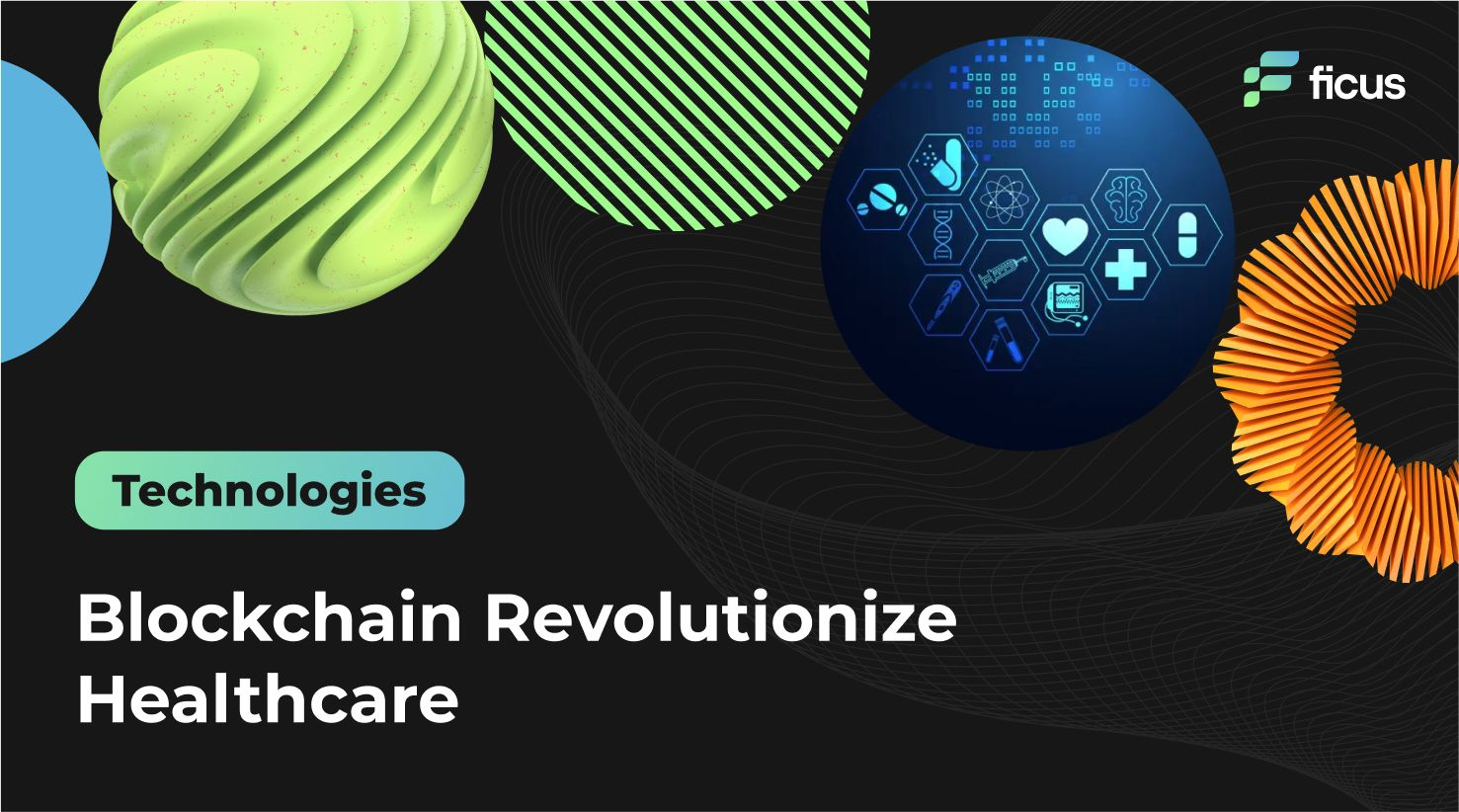Blockchain technology, often associated with cryptocurrencies like Bitcoin, has evolved significantly beyond its initial scope and now represents a transformative force in various industries. At its core, blockchain is a decentralized ledger that records transactions across a distributed network of computers. This ledger structure allows for secure and transparent record-keeping without relying on a central authority. Each transaction is grouped into a “block,” and these blocks are sequentially linked together to form a continuous, unalterable chain. This design ensures that once data is entered into the blockchain, it becomes part of a permanent record that cannot be altered or deleted without modifying all subsequent blocks. This modification process requires a consensus from the network participants, making blockchain an inherently secure and tamper-resistant system.
- Blockchain enhances healthcare by ensuring secure data sharing, streamlining clinical trials, and improving cybersecurity.
- Challenges in healthcare include rising costs, a shortage of practitioners, an aging population, and concerns about technology.
- Blockchain has applications in various fields, including cryptocurrency, supply chain management, digital identity verification, and voting systems.
Beyond its initial application in cryptocurrencies, blockchain technology is now being leveraged for a wide array of uses, including supply chain management, healthcare, finance, and more. Software development firms are leading the charge with avant-garde, blockchain-powered solutions, charting new territory in the realm of healthcare innovation. Its ability to provide transparent and immutable records makes it an invaluable tool for enhancing security, increasing efficiency, and building trust in digital transactions. As industries continue to explore the potential of blockchain, its impact is set to expand, driving innovation and reshaping how we think about data management and security.
What is Blockchain?
Definition and Core Principles Blockchain technology is fundamentally defined by three core principles:
- Decentralization: Unlike traditional centralized systems where data is controlled by a single entity, blockchain operates on a distributed network of nodes. This decentralized nature means that no single party has control over the entire network, which mitigates the risk of data tampering and enhances the system’s resilience.
- Immutability: Once data is recorded on the blockchain, it becomes virtually impossible to alter. This immutability is achieved through cryptographic hashing and consensus mechanisms that ensure any changes to the data would require the consensus of the majority of network participants. This principle is crucial for maintaining the integrity of data, especially in industries like healthcare where accurate record-keeping is paramount.
- Transparency: Blockchain offers a high level of transparency, as all participants in the network have access to the same version of the ledger. This transparency facilitates trust and accountability, as transactions are visible and verifiable by all parties involved. In healthcare, this can mean more accurate tracking of patient data and treatment histories, improving both patient outcomes and operational efficiency.
Good health and meaningful software solutions work together to create a better quality of life.
Vantage Fit
How Does Blockchain Work?
Explanation of Blocks, Chains, and Consensus Mechanisms
Blockchain technology operates through a structured system of blocks and chains. Each block in a blockchain contains a set of transactions or data records. When a block is filled with data, it is cryptographically linked to the previous block, forming a continuous chain of blocks. This linking creates a secure and immutable ledger of transactions that is resistant to tampering.
Blocks: Each block in the blockchain includes a timestamp, a list of transactions, and a reference to the previous block through a cryptographic hash. This hash is a unique digital fingerprint that ensures the block’s integrity and links it to the chain. If any data within the block is altered, the hash changes, breaking the link with the previous block and signaling tampering.
Chains: The chain is essentially a sequence of blocks connected through their cryptographic hashes. This chaining process ensures that every block is securely linked to its predecessor, creating a chronological and immutable record. The entire chain is distributed across the network, allowing all participants to view and verify the ledger.
Consensus Mechanisms: To maintain the integrity and security of the blockchain, consensus mechanisms are employed. These mechanisms ensure that all participants in the network agree on the validity of transactions and the state of the blockchain. They prevent fraud and double-spending and ensure that the blockchain remains secure and reliable.
Consensus Mechanisms
Proof of Work (PoW): Proof of Work is one of the earliest and most widely used consensus mechanisms. In PoW, network participants, known as miners, compete to solve complex mathematical problems. The first miner to solve the problem gets to add the next block to the blockchain and is rewarded with cryptocurrency. This process requires significant computational power and energy, making it secure but also resource-intensive. PoW ensures that the blockchain remains resistant to tampering and attacks, as altering the blockchain would require redoing the work for all subsequent blocks, which is practically infeasible.
Proof of Stake (PoS): Proof of Stake is an alternative consensus mechanism designed to address some of the inefficiencies of PoW. In PoS, validators are chosen to create new blocks based on the number of cryptocurrency tokens they hold and are willing to “stake” or lock up as collateral. Unlike PoW, PoS does not require extensive computational work, making it more energy-efficient. Validators are selected randomly or through a weighted system, where the more tokens a participant holds, the higher their chances of being chosen to add a block. PoS encourages participants to act honestly, as dishonest behavior could result in the loss of their staked tokens.
Both Proof of Work and Proof of Stake have their advantages and challenges. PoW is highly secure but resource-heavy, while PoS is more energy-efficient but requires careful management to prevent centralization and ensure fairness.
In the context of healthcare, blockchain’s consensus mechanisms help ensure that medical records and transactions are accurate, secure, and tamper-proof. The choice of consensus mechanism can impact the efficiency and scalability of blockchain applications in healthcare, making it essential to consider the specific needs and constraints of the industry when implementing blockchain solutions.
Do you need the development of medical software?
Contact us10 Blockchain Use Cases in Healthcare
- Securing Patient Records: One of the most promising applications of blockchain in healthcare is the secure management of patient records. Traditional electronic health record (EHR) systems often suffer from vulnerabilities and fragmented data storage. Blockchain technology offers a decentralized, tamper-proof method for storing patient records, ensuring that they are secure from unauthorized access and modifications. Each patient’s medical history can be stored in a block and encrypted, with only authorized healthcare providers having access through secure private keys. This not only enhances data security but also ensures that patient information is accurately maintained and easily accessible when needed.
- Combating Fraud: Fraud in healthcare can manifest in various forms, such as billing fraud, prescription fraud, and counterfeit drugs. Blockchain technology helps combat fraud by providing a transparent and immutable ledger of transactions. For example, every transaction related to medical billing and prescription issuance can be recorded on the blockchain, making it easier to track and verify the authenticity of claims and prescriptions. The transparent nature of blockchain helps in detecting and preventing fraudulent activities, thus reducing financial losses and improving the integrity of the healthcare system.
- Supply Chain Transparency: The pharmaceutical supply chain is often complex and susceptible to disruptions, counterfeit drugs, and inefficiencies. Blockchain can enhance supply chain transparency by providing an immutable record of every transaction along the supply chain, from manufacturer to distributor to end-user. Each transaction is recorded in a block, creating a traceable history of the drug’s journey. This transparency helps in verifying the authenticity of drugs, reducing counterfeit incidents, and ensuring that drugs are stored and transported under appropriate conditions.
- Clinical Trials Management: Managing clinical trials involves numerous data points, including participant information, trial protocols, and results. Blockchain can streamline clinical trials by providing a secure and transparent platform for recording and sharing trial data. This helps ensure that data is accurate, unaltered, and accessible to all stakeholders involved. Additionally, blockchain can enhance patient recruitment by providing a transparent and efficient way to track and verify participant consent and adherence to trial protocols.
- Data Interoperability: Healthcare systems often face challenges related to data interoperability, where different systems and platforms struggle to communicate effectively. Blockchain can facilitate data interoperability by providing a standardized and secure method for exchanging information across various systems. Through a blockchain-based platform, different healthcare providers and systems can access and share patient data seamlessly while maintaining data integrity and privacy. This promotes more cohesive and coordinated care, improving patient outcomes.
- Patient Consent Management: Obtaining and managing patient consent is crucial in healthcare, particularly for data sharing and participation in research. Blockchain technology can streamline patient consent management by recording consent agreements in a secure and immutable ledger. Patients can give, withdraw, or modify their consent through a blockchain-based platform, with all changes recorded transparently. This ensures that consent is always up-to-date and accurately reflects the patient’s wishes, enhancing patient autonomy and trust.
- Research and Development: Blockchain can accelerate research and development (R&D) in healthcare by providing a secure platform for sharing research data and findings. Researchers can collaborate more effectively by accessing a transparent and immutable record of research data, avoiding duplication of efforts and ensuring data integrity. Blockchain also facilitates the management of intellectual property and research agreements, making it easier to track contributions and protect innovations.
- Telemedicine: Telemedicine has gained significant traction, especially with the rise of remote healthcare services. Blockchain technology can enhance telemedicine by providing a secure and transparent platform for managing patient data and interactions. Blockchain can facilitate secure video consultations, encrypt patient data transmitted during remote sessions, and ensure that patient records are accurately updated and accessible to all authorized parties. This enhances trust and security in telemedicine services, making them more reliable and efficient.
- Personalized Medicine: Personalized medicine aims to tailor healthcare treatments to individual patients based on their genetic, environmental, and lifestyle factors. Blockchain can support personalized medicine by securely managing and sharing large volumes of genetic and personal health data. A blockchain-based platform can provide a decentralized repository for this data, allowing researchers and healthcare providers to access and analyze it securely. This enhances the ability to develop and deliver personalized treatments, improving patient outcomes and advancing medical research.
- Insurance Claims Processing: The process of handling insurance claims is often fraught with inefficiencies and potential for fraud. Blockchain technology can streamline insurance claims processing by providing a transparent and automated system for managing claims. Each claim can be recorded as a block on the blockchain, with all relevant information and transactions tracked and verified. This reduces the administrative burden, speeds up claims processing, and minimizes the risk of fraudulent claims, benefiting both insurers and policyholders.
Key Challenges in the Healthcare Industry
Data Security and Privacy
Data security and privacy are paramount in healthcare due to the sensitive nature of patient information. Healthcare organizations are frequent targets for cyberattacks, resulting in significant data breaches that compromise patient confidentiality and trust. Recent high-profile breaches have exposed millions of patients’ personal and medical records, leading to identity theft, financial loss, and reputational damage.
The need for secure patient data management is critical. Traditional systems often struggle with inadequate security measures and fragmented data storage, making it challenging to protect sensitive information. There is a growing demand for more robust security solutions that can safeguard patient data against unauthorized access and cyber threats. Blockchain technology offers a promising solution in this regard, particularly through its application in blockchain healthcare. By providing a decentralized, encrypted ledger, blockchain ensures data integrity and privacy, reducing the risk of breaches and enhancing overall security. This innovative approach can effectively address the challenges of traditional data management systems, offering a more secure and reliable means of protecting patient information.
Data Interoperability
Data interoperability remains a significant challenge in the healthcare industry. Many healthcare systems operate in silos, resulting in fragmented data that is not easily accessible or shareable across different platforms and organizations. This fragmentation hampers the ability of healthcare providers to deliver coordinated and efficient care, as patient information may be incomplete or scattered across multiple systems.
Seamless information sharing is essential for improving patient care and operational efficiency. Healthcare providers need a unified view of patient data to make informed decisions and deliver timely treatments. Blockchain technology can address these issues by providing a standardized, decentralized platform for data exchange. By recording data on a blockchain, different systems and organizations can access and share patient information in a secure and interoperable manner, promoting better coordination and continuity of care.
Fraud and Mismanagement
Fraud and mismanagement are persistent issues in the healthcare industry, affecting both financial performance and patient trust. Examples of fraud include billing fraud, where providers submit false or inflated claims for reimbursement, and prescription fraud, where controlled substances are obtained or distributed unlawfully. Such fraudulent activities not only lead to substantial financial losses but also undermine the integrity of the healthcare system.
The impact of fraud extends beyond financial costs; it erodes trust between patients and healthcare providers and can lead to regulatory scrutiny and legal consequences. Mismanagement of resources and data further exacerbates these issues, contributing to inefficiencies and increased operational costs. Blockchain technology, particularly through its application in blockchain healthcare, offers a powerful solution to mitigate these challenges. By providing a transparent and immutable record of transactions, blockchain makes it easier to detect and prevent fraudulent activities. This technology ensures that every transaction is accurately recorded and verifiable, thereby enhancing resource management and maintaining trust in the healthcare system. With blockchain healthcare solutions, the potential for fraud is significantly reduced, and operational efficiencies are improved, fostering a more secure and reliable healthcare environment.
Future Prospects of Blockchain in Healthcare
Emerging Trends and Innovations
The future of blockchain in healthcare is promising, with several emerging trends and innovations on the horizon. One significant advancement is the development of more scalable and energy-efficient consensus mechanisms, such as Proof of Authority and Hybrid Consensus Models, which aim to improve transaction throughput and reduce the environmental impact of blockchain networks. Additionally, advancements in smart contracts—self-executing contracts with the terms directly written into code—are expected to automate and streamline various healthcare processes, from patient consent management to clinical trial agreements.
Potential Future Applications in Healthcare
Future applications of blockchain in healthcare are likely to expand beyond current use cases. Innovations such as decentralized clinical trial platforms, where participants and researchers interact directly without intermediaries, could enhance transparency and efficiency in trials. Moreover, blockchain could play a crucial role in integrating emerging technologies like artificial intelligence (AI) and the Internet of Things (IoT) in healthcare, enabling secure and interoperable data exchanges between AI-driven diagnostics and IoT-enabled health devices. These advancements have the potential to revolutionize patient care, data management, and research methodologies.
Predictions and Expert Opinions
Experts predict that blockchain technology will increasingly become a cornerstone of digital transformation in healthcare. According to industry analysts, the integration of blockchain with other technologies will drive innovations in data management, patient care, and operational efficiency. Experts also highlight that as regulatory frameworks and standards evolve, blockchain will gain broader acceptance and adoption within the healthcare sector. For instance, healthcare blockchain solutions are expected to align with emerging regulations on data privacy and security, enhancing their credibility and utility.
The long-term outlook for blockchain in healthcare suggests a significant shift towards more secure, transparent, and efficient systems. As blockchain technology matures, it is anticipated that its adoption will become more widespread, with an increasing number of healthcare organizations leveraging blockchain to address critical challenges such as data security, interoperability, and fraud. Additionally, blockchain’s role in facilitating patient-centered care and personalized medicine is expected to grow, offering new opportunities for improving health outcomes and patient engagement.
How Your Business Can Get Involved
Steps to Implement Blockchain Solutions
- Assess Your Needs: Begin by evaluating the specific challenges your organization faces, such as data security, interoperability, or fraud. Identify areas where blockchain technology can provide tangible benefits and align with your business goals.
- Develop a Strategy: Create a comprehensive blockchain adoption strategy that includes clear objectives, a roadmap for implementation, and a budget. Consider starting with pilot projects to test blockchain applications on a smaller scale before full-scale deployment.
- Choose the Right Platform: Select a blockchain platform that suits your needs, whether it’s a public blockchain, private blockchain, or a consortium blockchain. Consider factors such as scalability, security features, and compatibility with existing systems.
- Engage with Experts: Collaborate with blockchain experts and consultants who have experience in the healthcare sector. Their insights and guidance can help navigate the complexities of blockchain technology and ensure successful implementation.
- Focus on Integration: Ensure that blockchain solutions integrate seamlessly with your existing IT infrastructure and workflows. This includes addressing interoperability issues and ensuring that the blockchain solution enhances, rather than disrupts, your current operations.
- Train Your Team: Provide training and education for your staff on blockchain technology and its applications. Ensuring that your team is knowledgeable about blockchain will facilitate smoother adoption and utilization.
- Monitor and Evaluate: Continuously monitor the performance of your blockchain solutions and evaluate their impact on your business processes. Gather feedback from users and stakeholders to make necessary adjustments and improvements.
Partnerships and Collaborations
- Blockchain Solution Providers: Partner with blockchain technology providers who specialize in healthcare solutions. These partnerships can provide access to cutting-edge technology, technical support, and expertise in developing and deploying blockchain applications.
- Consulting Firms: Collaborate with consulting firms that offer blockchain advisory services. These firms can help with strategy development, implementation planning, and regulatory compliance, ensuring that your blockchain initiatives are aligned with industry standards and best practices.
- Industry Alliances: Join industry alliances and consortiums focused on blockchain in healthcare. These groups offer opportunities for networking, knowledge sharing, and collaboration with other organizations and stakeholders interested in blockchain technology.
- Academic and Research Institutions: Engage with academic and research institutions that are exploring blockchain applications in healthcare. These partnerships can provide access to research findings, innovative ideas, and potential pilot projects.
Final Thought
Blockchain technology has transformative potential for healthcare, addressing key challenges like data security, interoperability, and fraud. As its applications expand, blockchain will drive innovations in patient care and operational efficiency.
Healthcare organizations can greatly benefit from blockchain by enhancing security, transparency, and efficiency. Strategic planning and expert collaboration are essential for leveraging these benefits effectively.At Ficus Technologies, we lead in creating custom blockchain healthcare solutions. Discover how our expertise can help optimize your operations and improve patient outcomes. Contact us to learn more.
Blockchain technology helps combat counterfeit drugs by providing a transparent and immutable ledger for tracking pharmaceuticals throughout the supply chain. Each transaction, from manufacturing to distribution to the end consumer, is recorded on the blockchain, creating a verifiable history. This traceability ensures the authenticity of drugs, reduces the risk of counterfeit products entering the market, and strengthens the integrity of the supply chain.
Real-world examples of blockchain applications in healthcare include managing and securing patient health records, such as through platforms like MedRec. Clinical trial management is another application, with companies like IBM Watson Health using blockchain to improve transparency and reduce data tampering. Additionally, blockchain is employed in supply chain management, with projects like VeChain tracking pharmaceuticals from production to delivery to ensure drug authenticity and prevent counterfeiting.
Yes, blockchain technology is secure for storing sensitive healthcare data. Its features, such as decentralization, immutability, and encryption, make it difficult for unauthorized parties to alter or access data. Data is encrypted and stored across a decentralized network of nodes, enhancing security and reducing the risk of breaches. However, while blockchain improves security, additional measures and compliance with regulations are necessary for comprehensive protection of sensitive healthcare information.
Blockchain technology aids organizations in sharing data by providing a secure, transparent, and decentralized platform for information exchange. It allows organizations to share data without a central authority, ensuring consistency and tamper-proof records. The immutable ledger of blockchain records every transaction and data exchange, verifying the authenticity and integrity of shared information. This enhances interoperability between systems, improves data accuracy, and fosters trust among organizations involved in the data-sharing process.









Blockchain’s applications extend far beyond healthcare, but its potential to revolutionize the industry is immense. Secure data sharing, streamlined clinical trials, and improved cybersecurity are just a few ways it can reshape healthcare. Ficus Technologies’ focus on custom healthcare technology solutions positions them as a critical player in this transformative journey.
The challenges in the healthcare industry, such as rising costs and a shortage of practitioners, require innovative solutions. Blockchain’s ability to streamline data management and enhance security is a game-changer. Ficus Technologies’ expertise in healthcare software development can be pivotal in addressing these issues and transforming the industry.
Blockchain’s transformative potential in healthcare is truly groundbreaking. It’s not just about secure data sharing; it’s a game-changer for clinical trials, cybersecurity, and data integrity. Blockchain’s role in revolutionizing healthcare can’t be overstated, and it’s exciting to see software development firms like Ficus Technologies leading the charge in harnessing its power.